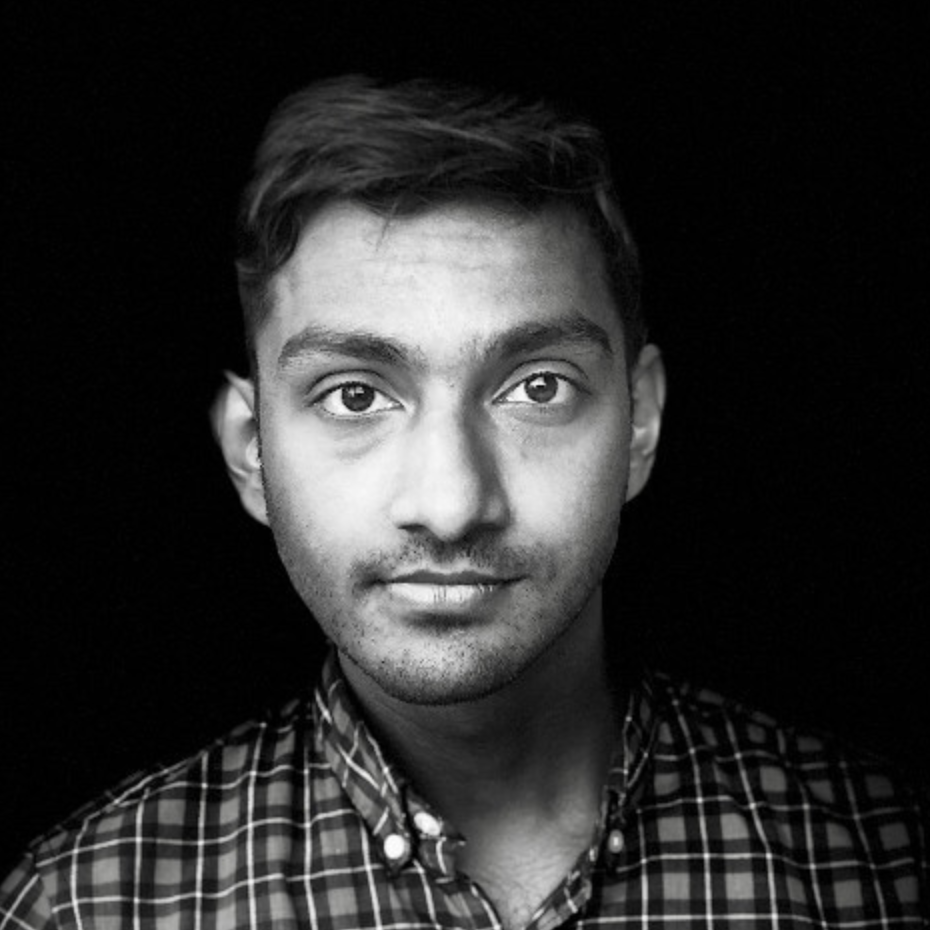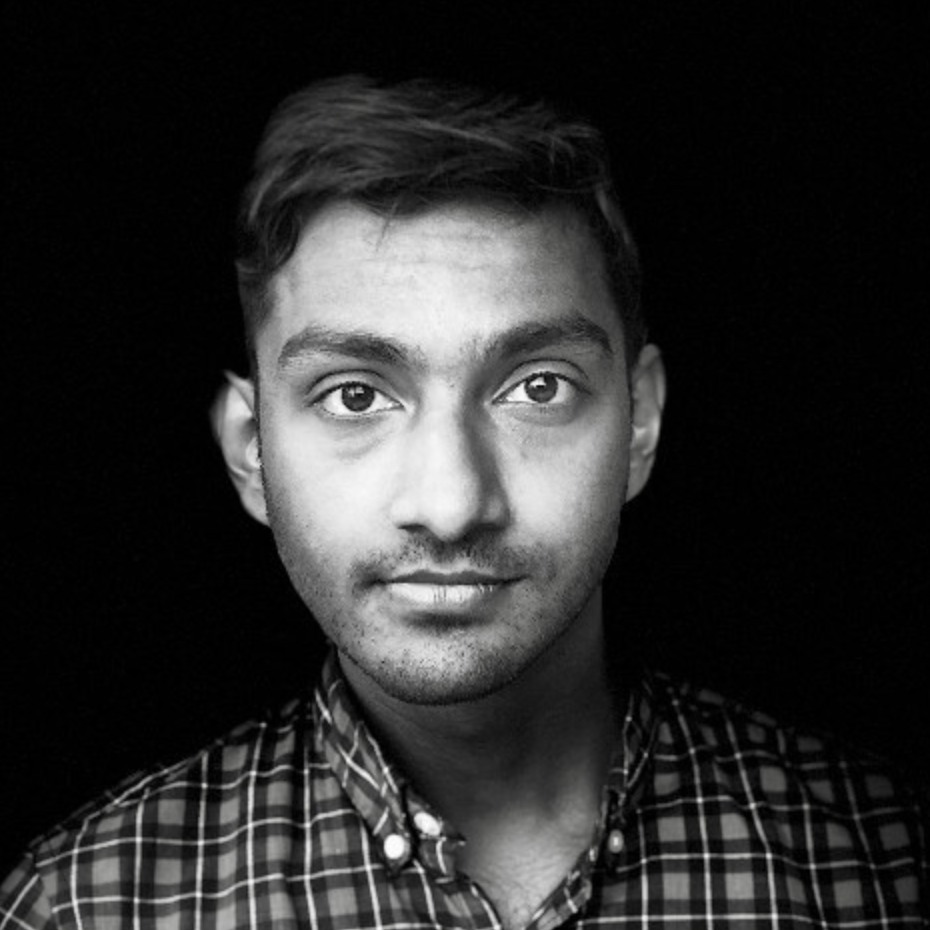The pragmatic truth
Yes humans are good but we can also be pretty bad sometimes. Community member, entrepreneur, VC, and holistic skeptic Prashant Fonseka shares his pragmatic beliefs for trying times.

Prashant Fonseka
Prashant Fonseka, Partner at Tuesday Capital, Entrepreneur, and investor in pursuit of magic
The pragmatic truth
An interview with Prashant Fonseka and Emily Rasowsky of Humans Are Good Foundation.
Emily
What is it that inspires you to care about the future of humans and humanity?
Prashant
I have so many different ways I can approach this and answer this because there are obviously just so many different ways in which it's true, right? In the post-Enlightenment, modernist rationalist world, we've gained great things: scientific advancement and ethical advancement. But we've also lost the spiritual core and essence of what it is to be human. When we reduce ourselves to just what we can see and observe and describe, and model ,and replicate, and simulate, we lose our connection to what is actually essentially human.
Ultimately we actually lose our connection to our intuition, to source, to nature, to the universe. We live in this world where we have mechanized the way that we view what a human is. The trajectory that we're on, is that we are devaluing humanity so much that almost certainly that will mean that humanity will just not exist. Whether it's that we do something reckless and destroy our environments, or whether we have horrible nuclear war, or a bio weapon. Whether we do it intentionally or accidentally we're on this collision course right now, where we have forgotten what's actually valuable. We're building machines that are incredibly powerful. We could just program a machine to make the world optimal, and it can decide that what is human is not optimal or important and get rid of us. We could very easily be the cause of our own undoing.
And it feels like we actually are on a trajectory to be the cause of our own undoing right now. And I think when you take a step back from that, and you really dig into why, the reason is A. we don't really know how to define humanity anymore. It's like there are some meatbags who talk. And B. we don't explicitly even value humanity. Right. I think a lot of us actually think that humans are bad, we’re unethical, we ruin things. We're like a cancer on the earth. We’re this malignant thing. So, in order to believe that humans are good we need to recognize that we are not just these bodies and these mammals and these beings, but that we have a spiritual nature, we have a connection to consciousness.
The best litmus of belief in the good of humanity is: you believe that there is something greater than yourself. Take a moment to ponder that. It's actually a very powerful idea. And it's not the consensus, right? A lot of scientifically oriented people who would say they're very liberal, and progressively-minded still functionally operate from this place of I am just this material being. I believe in science, but I don't believe in a spirit, or in a consciousness, or in any kind of higher power or anything beyond ourselves.
At some point the only thing you can know is your own existence. For everything else you must believe. You must believe. In order to believe I think you need to connect. It's that connection to inner consciousness, to universal and collective consciousness, that is missing in our world. So that is why. We will all die if we don't believe that humans are good, and elevate the consciousness of humans. We won't exist anymore.
Emily
Can you talk a little bit about a moment in your life, or an experience that expanded your consciousness to these ideas?
Prashant
Yes. This is the story of the fork in my professional path, which led to a path of personal development, which led to a path of spiritual development. It’s very related to the work that I do. I was at a conference. I have worked as a venture capital investor the better part of the last eight years. Relatively early in my career, I was at a conference and I watched a gentleman have way too much to drink. He stumbled and dropped a bottle of alcohol, and he fell into a pool. And a really, very prominent venture capitalist who was kind of by the pool near me just went, oh, of course, they're all like that. As a young guy, I just go, ‘what do you mean, they're all like that? Is he okay’ He's like, yeah that guy just sold this company for like $300 million last week and here's what happens. [Folks like that] make all that money and they think they're going to be happy. Then after they do, they have the saddest day of their life because they realize they're still not happy. Then they drink, they fall into pools, and they do stuff like this. It was such a wakeup call for me.
Emily
Prashant, it’s so relatable. I love that you're sharing it.
Prashant
Moments like these were my cheat and my fortune. I got to see what it looked like at the top. You know, really very up close. I got to see what it looks like when people achieve all the things, that at least in this professional world, that everyone dreams of and it was miserable. It was horrible. I was like, I don't want to be like that guy. What am I doing here? That really was kind of an awakening moment. It took a long time to go from that to the spiritual realm and to consciousness. But I think that was the clearest turning point in my mind.
Emily
Yeah. And when you think back to that moment, what was the first thing you did? Did you talk to a therapist? What was the first practice that you explored?
Prashant
You know, at that time, I didn't have any tools, like what you're describing. I didn't have anyone to go to. The honest truth is, in that case, I kept it to myself. I was at a conference, it was like a big lightbulb mental note. But I'm in Hawaii, so I'm just going to keep drinking and having fun. Which is what I did. I had a good time. But it really just stuck in my mind for some time after. I noticed that I started to go back towards the arts and creative things I enjoyed growing up. I started writing a bunch, which I've been doing for a few years now. It felt like that problem of wealth without happiness was a little bit more in the future. It wasn't like ‘I need to change everything today’. I did know I needed to change things eventually.
Emily
If you could go back and tell that younger version of yourself something, what would you say?
Prashant
I’d say duh - that's not gonna make you happy’. What will make you happy is probably human connection. I think it's human connection and internal peace and happiness. I would also say that happiness has very little to do with the material. The material isn't necessarily bad, and it doesn't guarantee that you will be unhappy, but it's not going to make you happy. I would remind myself that I am trying to solve a spiritual question through material means. Many people do that today. People are trying to solve spiritual problems with material solutions. And it's never gonna work. Right? It will not fit, it will never work.
Emily
I know you are like, such a king of skepticism, which I so appreciate -- what would you say to people who are like, humans are terrible, this work sucks?
Prashant
Okay, so when someone says humans suck, I think I approach that with a yes, and...it's like a half a glass half empty, glass half full kind of thing. Look, if you want to find all the ways in which humans are terrible, you will. You know? What I would say is I would ask them to think about their own lives, and then their own communities and ask, how does that belief make you feel? How does that benefit you? And then what do you care about? Who do you care about? How does that bode for them? For your family, for your children, for your friends, for your community? Do you believe that that is the fundamental truth? But honestly, rather than telling people that they're wrong about humans being terrible, because honestly, they're not, you know, we can be terrible. I don't want to tell people that they're wrong, I just want to show them the other side of it and go, yes, humans are terrible and here are all the ways in which humans are great. We can talk about it but it's something that's most powerful when you experience it. When you really have a very elevated experience yourself, when you really start to feel real connection to other people. Real connection to source. It's something you just have to experience. And you can experience it through something as simple as meditation, breath, or movement-based practices—I have come to love Qi Gong. I think those can lead you to moments and experiences that feel transcendent. You need no toolkit beyond that, in my view, to get far enough to go, “oh, actually, humanity is pretty good.” I'd be hard pressed to believe that if someone has gone through that kind of work, they're going to still believe that humans are terrible. If we don't fix something we will all be gone. We won’t be around forever if we keep bad at the way we are. But that doesn't mean that we're bad. We just are. We are all going to be gone eventually.

Prashant Fonseka
Prashant is an entrepreneur and Partner at Tuesday Capital, formerly CrunchFund, where he has been supporting early stage startup founders since 2013. He is passionate about mental and spiritual health, seeking consciousness and connection amidst various other pursuits including motorcycling, aviation, and visual arts.